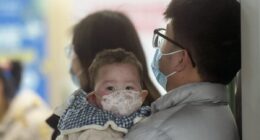
Previous studies have pointed to evidence that immaturity relative to peers can contribute to an increased likelihood of being diagnosed with ADHD.
‘Immaturity relative to peers can contribute to an increased likelihood of being diagnosed with ADHD, low educational achievement, substance misuse disorder, and depression in later life.’
Read More..
Typically, a comparison is made as to whether a child shows ADHD symptoms to a significantly greater degree than to others in their year group, but this doesn’t always take in to account the potentially significant age gap between the youngest and oldest members of an age group.
Senior author Professor Jonna Kuntsi from King’s IoPPN said “The difference between the youngest and oldest member of a class can be up to 11 months. In the early stages of childhood, this is a significant difference in terms of maturity, behavior and cognitive abilities.
“Behavioral characteristics that are normal in younger children are in some cases being compared to much older individuals, and we can see from the data that there are very real and long-term consequences to being the youngest in a class year.”
The investigators note that the negative effects of young relative age is much less common in countries like Denmark, possibly due to the more flexible approach to school starting age there.
Young children that might not be ready to start school have the opportunity to start school later, and as such are at less risk of experiencing negative side effects seen in other countries. It is a practice that the researchers say could be emulated elsewhere.
Professor Kuntsi has previously called for greater focus to be placed on the relative age of students in relation to difficulties with reading, spelling or arithmetic skills which aren’t as a result of low cognitive ability.
READ RELATED: Heart attack warning – do you have these painful foot lumps? Subtle signs to watch out for
A recent large register study in Finland found that the relative age effect emerges also for specific learning disorders which Professor Kuntsi says is likely due to the same referral bias as those referred for ADHD assessment.
She cites a need for a cross-country review into approaches that best ensure children’s future outcomes are fully independent of their relative age at the start of school: “Being the youngest child in a classroom can have complex developmental consequences, and can place them at a disadvantage at the earliest stages of their academic life.
If we are to overcome this, there needs to be a greater understanding from decision makers, teachers, and clinicians so that all children have an equal chance to succeed later in life.”
King’s IoPPN, in partnership with the South London and Maudsley NHS Foundation Trust and the Maudsley Charity, are in the process of opening a world leading centre for children and young people mental health.
The Pears Maudsley Centre for Children and Young People is expected to open in 2023 and will bring together researchers and clinicians to help find solutions that will transform the landscape for children’s mental health.
This study was possible thanks to funding from funding from the European Commission’s Horizon 2020 research and innovation programme under grant agreement No 667302, and the from the Swedish Council for Health, Working Life and Welfare.
Source: Eurekalert
Source:










